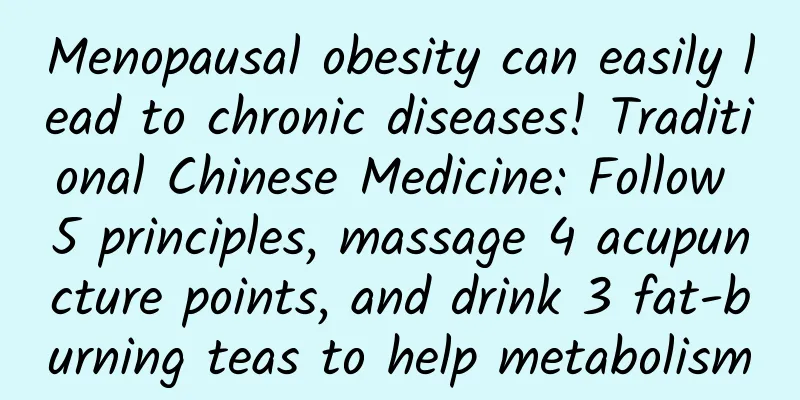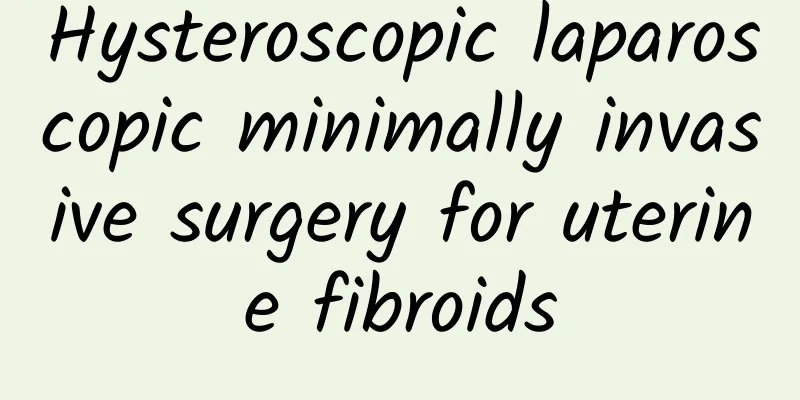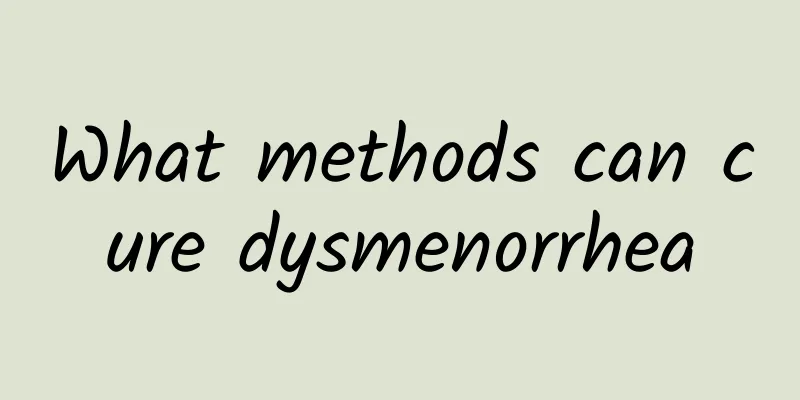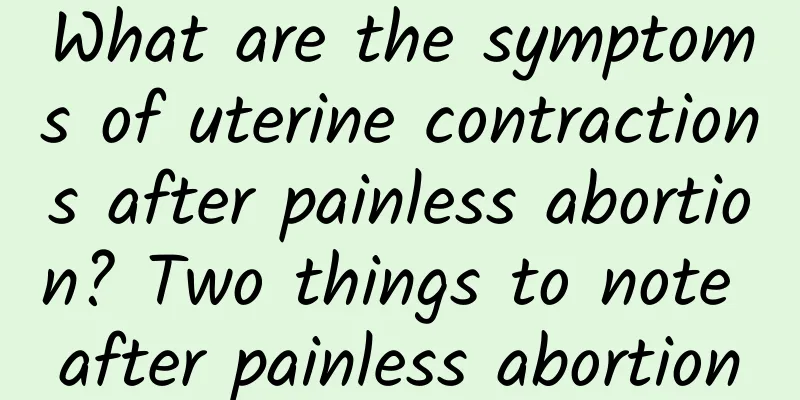Menopausal obesity can easily lead to chronic diseases! Traditional Chinese Medicine: Follow 5 principles, massage 4 acupuncture points, and drink 3 fat-burning teas to help metabolism

|
Case: Ms. Liu, 49 years old, has recently been experiencing symptoms such as hot flashes, night sweats, irritability, shallow sleep at night, easy awakening and difficulty falling asleep, dry eyes, etc. Her weight has unknowingly increased by more than 10 kilograms in the past one or two years. Weight loss during menopause - First of all, nourishing the liver and kidneys Hormone deficiency, low metabolism, and chronic diseases are prone to occur When the patient came to see the doctor, she was in a particularly irritable mood and her menstrual period was quite irregular. Western medicine diagnosed her with menopausal symptoms caused by hormone deficiency. In addition, the blood test report also showed high cholesterol, high triglycerides, and high liver index. Western medicine prescribed hormone drugs for treatment, but because Ms. Liu had a history of breast fibrocystic disease, she did not dare to take the hormone drugs prescribed by Western medicine and came to see the doctor through a friend's introduction. After taking the patient's pulse and conducting a detailed examination, it was determined that the patient had the syndrome of liver-kidney yin deficiency and hyperactivity of fire. There are many such patients clinically. The lack of hormones causes a rapid decline in body functions and a decrease in metabolic rate, which not only causes many menopausal symptoms, but also causes a sharp increase in weight. They need to start regulating the liver and kidneys. Menopause refers to a transitional period when women's ovarian function gradually declines and menstruation finally stops, which occurs between the ages of 45 and 55. Common clinical symptoms include unstable menstrual cycle, hot flashes, sweating, irritability, depression, fatigue, insomnia, headache and other uncomfortable symptoms. The main causes of menopausal symptoms are ovarian function degeneration and a decrease in female hormones. However, traditional Chinese medicine believes that it is related to the gradual decline of kidney qi, the exhaustion of body essence, and the imbalance of yin and yang. The Yellow Emperor's Classic of Internal Medicine says: "When a woman reaches the age of 49, her Ren meridian becomes weak, her Taichong meridian becomes weak, her Tiangui is exhausted, and her Didao is blocked, so her body deteriorates and she becomes childless." Tiangui is a hormone-like substance produced when the kidney's essence reaches a certain level. It has the function of promoting human growth and development as well as healthy reproductive function. When this is lacking, menopause occurs. For female friends, the two meridians of Ren and Chong are related to female gynecological physiological functions such as menstruation, leucorrhea, and childbirth. Ren and Chong are connected to the Liver Meridian and belong to the liver, so when the liver's Qi is adjusted well, the physiological functions of the Ren and Chong meridians can be regulated. If the liver's regulating function is normal, "the Ren meridian is unobstructed and the Taichong meridian is strong", and menstruation will come on time; if it is not smooth, it will affect women's menstruation, leucorrhea, reproduction, infertility and other functions. Once women reach menopause, it is difficult to control their weight due to hormone deficiency and low metabolic rate. Therefore, women who are obese during menopause need to regulate the "liver and kidney" according to traditional Chinese medicine and strengthen the body's basal metabolic rate in order to effectively fight obesity and some chronic diseases induced by menopause. In fact, the human body's basal metabolic rate is the highest when it is between 18 and 25 years old. After the age of 25, the basal metabolic rate will begin to decline, decreasing by about 10% every 10 years. That is to say, when we are around 50 years old, the basal metabolic rate has decreased by 25-30%. Because the metabolic rate decreases every year with age, it is easy to gain weight in middle age. If your exercise habits and diet are not adjusted, weight can easily increase. Of course, due to changes in modern people's eating habits and lifestyles, many obese people in menopause tend to have the syndrome of "liver and kidney yin deficiency with fire", that is, they not only have liver and kidney deficiency, but also have a condition of virtual fire. Therefore, at this stage, they will experience hot flashes, night sweats, irritability, anger, shallow sleep and easy awakening, dry mouth, itchy skin, dry eyes and other phenomena. Multi-faceted conditioning can alleviate menopausal discomfort, increase metabolic rate and prevent weight gain 1. Dietary principles for menopause Principle 1 During menopause, people are mostly suffering from yin deficiency, so it is appropriate to eat foods that nourish yin and reduce fire. You can eat more fiber-rich vegetables on a daily basis, such as celery, carrots, spinach, amaranth, lotus root, radish, seaweed, cucumber, green pepper and fresh fruits, which can help intestinal digestion, increase gastrointestinal motility, and achieve the function of nourishing yin and moistening dryness. Principle 2 Women in menopause are most likely to become obese. As they age, their metabolic rate decreases, resulting in excess calories in the body and causing weight gain. Moreover, obesity will increase the formation of arteriosclerosis in the body and increase the incidence of cardiovascular diseases. Therefore, you must control your diet moderately, especially the intake of fat and sugar, and maintain good exercise habits to reduce the occurrence of cardiovascular and cerebrovascular diseases. Dietary principles: less salt, less sugar, and less fat. Avoid spicy, dry, and yin-depleting foods, such as roasted, grilled, and fried foods that are easy to cause inflammation, and irritating foods such as coffee, strong tea, chili, pepper, curry, etc. Principle 3 Obese women in menopause should reduce starchy foods in their diet, especially try to avoid starch at night, and focus on vegetables and fish. To supplement more protein, you can eat more high-quality protein such as lean meat, chicken, fish, eggs, dairy products and soy products. It is best to eat low-fat dairy products to reduce fat intake. Beans contain soy isoflavones, which can play an estrogen-like role, relieve menopausal discomfort, and have a good regulating effect on the endocrine system. Principle 4 Eating more natural foods rich in gelatin and mucus can achieve the effect of nourishing yin, such as yam, black fungus, white fungus, okra, coral grass, kelp, jellyfish skin, sea cucumber and other foods rich in gelatin and can nourish yin blood. Principle 5 In order to deal with some symptoms of menopause, you can mix your own tea to drink on a daily basis to help relieve the discomfort of menopause. It can also effectively help reduce fat and lose weight, eliminate edema, allowing you to easily face the menopausal stage in a slim and happy manner. Liver nourishing and calming tea Medicinal materials: 3 red dates, 2 qian of licorice, 2 qian of lily, and 2 qian of floating wheat. Cooking method: First use scissors to cut small cracks in the red dates, boil 800cc of water, add red dates, licorice, lily, and floating wheat, turn to low heat and cook for about 10 minutes before turning off the heat. Soak for about 5 more minutes, remove the herbs and take them after they have cooled slightly. Efficacy: It can treat menopausal irritability, palpitations, chest tightness, depression, and depression. Liver nourishing and eyesight improving tea Medicinal materials: 2 qian of mulberry, 2 qian of wolfberry, 1 qian of chrysanthemum, and 3 red dates. Cooking method: First cut a small slit in the red dates with scissors, then add the red dates, mulberries and wolfberries into the boiling water of 800cc, then turn to low heat and cook for about 10 minutes. Add chrysanthemum and cook for about 2 minutes, then turn off the heat and soak for about 5 minutes. Remove the herbs and wait for them to cool slightly before taking. Efficacy: It can nourish the liver and kidneys, replenish blood and calm the mind, and treat blurred vision caused by liver and kidney yin deficiency during menopause. Danshen fat-reducing tea Medicinal materials: Salvia miltiorrhiza 5g, Hawthorn 6g, Lotus leaf 5g, Licorice 5g, Polygonum multiflorum 5g, Cassia seed 3g. Cooking method: Put the above medicinal materials into a gauze bag and seal it. Bring 700cc of water to a boil and then add the medicinal materials. Turn to low heat and cook for another 10 minutes. It can be taken after it cools down slightly. Efficacy: It can treat obesity caused by menopause, and has the effects of promoting blood circulation and removing blood stasis, promoting diuresis and reducing swelling, and reducing weight and fat. It can regulate menopausal obesity and is suitable for people with higher triglycerides and cholesterol after menopause. 2. Menopause and the use of Chinese medicine The menopausal constitution is due to liver and kidney yin deficiency and hyperactivity of fire, so the treatment medication will focus on clearing the deficiency fire. Commonly used Chinese medicinal materials include: raw rehmannia, peony bark, anemarrhena asphodeloides, mulberry bark, phellodendron chinense, and rehmannia root bark. Chinese medicinal materials for promoting blood circulation and removing blood stasis include motherwort, salvia miltiorrhiza, hawthorn, red peony root, peony bark, safflower, and angelica root. Chinese medicinal materials for replenishing liver and kidney yin deficiency: Polygonum multiflorum, Rehmannia glutinosa, Eclipta prostrata, Ligustrum lucidum, Scrophularia ningpoensis, Dioscorea opposita, Polygonatum odoratum, White Peony Root, Chinese Angelica sinensis, and Lycium barbarum. 3. Self-care acupoint massage during menopause Neiguan Point It calms the mind, relaxes the chest and regulates qi. It can soothe emotions, reduce the discomfort caused by menopause, and treat menopausal irritability, emotional instability, sleep disorders, hot flashes and night sweats, etc. The acupoint is located 3 finger widths away from the center of the wrist crease towards the elbow. Method: Use the tips of your thumbs to massage the Neiguan acupoint on each hand for 2 minutes. Shenmen acupoint The acupoint belongs to the original acupoint of the Heart Meridian of Hand Shaoyin, and corresponds to the heart and mind, hence the name. It has the effects of calming the mind, clearing away heart heat, and treating headaches, insomnia, palpitations, and irritability caused by menopause. The acupoint is located between the ulna and triangular bone of the little finger. Use the tips of your thumbs to massage the Shenmen acupoint on each hand for 2 minutes. Sanyinjiao acupoint It can regulate menopausal hormones, increase blood circulation in the lower limbs, and relieve menopausal symptoms such as hot flashes and night sweats. The acupoint is located on the inner side of the calf, 3 inches above the inner ankle bone (about 4 finger widths). Press this point with the tip of your thumb until you feel soreness in your calf. Press for 2 minutes on each foot. Fenglong Point The plump bulge of the calf muscle. It is an important acupoint for treating phlegm in Traditional Chinese Medicine. It can treat phlegm-dampness obesity, hypertension and hyperlipidemia caused by menopause. The acupoint is located 8 inches above the lateral malleolus, approximately at the midpoint of the line connecting the outer knee pit and the lateral malleolus. Press this point with the tip of your thumb for 2 minutes on each foot. 4. Exercise during menopause Women after menopause gain weight due to low basal metabolic rate. Therefore, to effectively increase the basal metabolic rate, it is necessary to cooperate with exercise to enhance the body's metabolic rate. However, due to liver and kidney deficiency, menopausal women suffer from muscle and bone degeneration and wear of joint cartilage, so they should not choose too intense exercises. They should choose gentler exercises such as yoga, brisk walking, Tai Chi, swimming, cycling, etc., which are less likely to harm muscles and bones, and can effectively lose weight, increase metabolism, and burn fat. 5. Daily life care during menopause Menopausal women should have a regular lifestyle and schedule and must avoid staying up late. From 11pm to 3am, the body's meridians are in the best state for detoxification, and you should get enough rest and sleep at this time. Staying up late is the root of all diseases, so getting enough rest can alleviate the discomfort of menopause. This article comes from the book "Slimming for a Healthy Body: A Lifetime Bible of Traditional Chinese Medicine for Slimming [Newly Revised • Healthy Upgraded Edition]" on Creative Market. |
Recommend
What does hyperprolactinemia mean?
Hyperprolactinemia is the most common pituitary d...
Increased vaginal discharge should be alert to the symptoms of cervicitis in women
Usually, the symptoms of female cervicitis are ba...
Experts explain the causes of vaginal candidal infection
Female friends often need to take care of the dai...
How to diagnose and treat severe cervical erosion
How to diagnose and treat severe cervical erosion...
Why do we need to check for uterine fibroids during premarital examinations?
Why should uterine fibroids be checked during pre...
Lose body fat! Eat this way before, during and after exercise
There are many weight loss methods on the market,...
Enjoy being thin! Eat cold pasta to control weight
After entering autumn, the weather is getting col...
Is cervical erosion related to men? Is it contagious?
Cervical erosion has no direct relationship with ...
Eat the right food to lose weight, promote metabolism and break down fat! 7 great weight loss foods to help you lose weight
You need to eat the right foods to lose weight. T...
Can eating right change your life? Let a nutritionist tell you about diet
"Eating is the greatest virtue of the countr...
How to prevent cervicitis? Will the disharmonious sex life of couples induce cervicitis?
Through the analysis of the causes of cervicitis,...
What can I eat after radiotherapy for uterine fibroids? What does radiotherapy for uterine fibroids mean?
What can I eat after radiotherapy for uterine fib...
No more weight gain! Try vegetable and fruit jelly for enzyme weight loss
The weather is getting hotter and hotter, so this...
What are the typical symptoms of vaginitis?
What are the symptoms of vaginitis? Vaginitis sym...
Is ovarian cyst surgery expensive?
Is ovarian cyst surgery expensive? Ovarian tumors...









